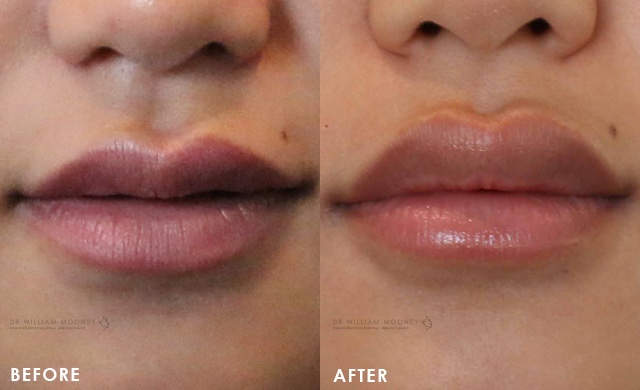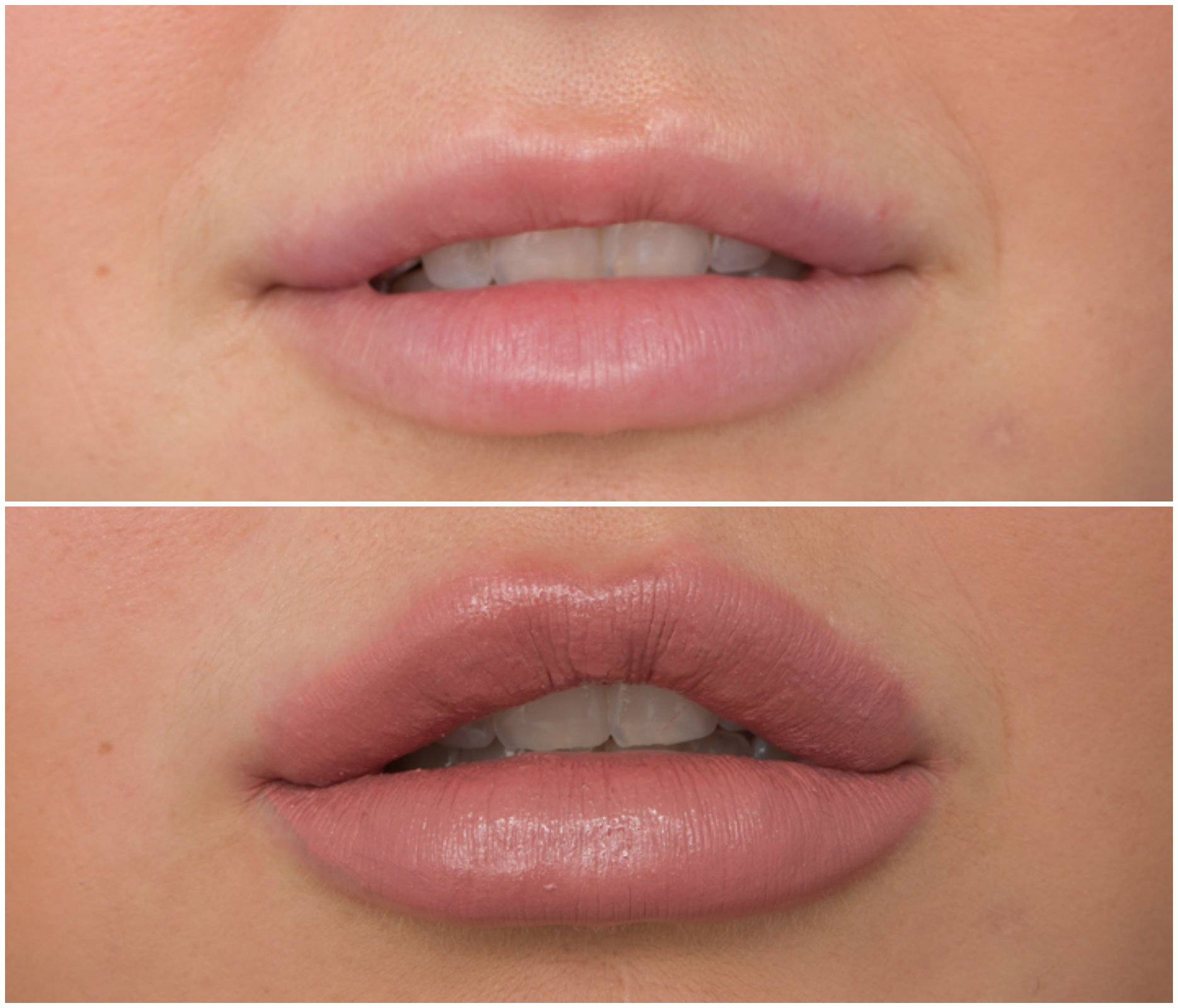Everything you need to know about Lip Augmentation
Lip augmentation is a cosmetic procedure that can give you fuller, plumper lips.
These days, an inject-able dermal filler is the most commonly used method of lip augmentation.
There are many types of dermal fillers that can be injected in your lips and around your mouth. But the most common fillers today are products that contain substances similar to hyaluronic acid. Hyaluronic acid is a natural substance found in the body. It helps increase volume in your lips.
These types of dermal fillers are sometimes called “hyaluronic acid fillers.”
Collagen, once the most common dermal filler, is used less often today. The newer options are safer and the effects last longer.
Fat injections and implants are other methods to plump lips. But they aren’t used as much today because the results vary and there is a greater risk of side effects.

Uses of Hyaluronic Acid Fillers
Hyaluronic acid fillers can improve the appearance of your lips by adding:
- Shape
- Structure
- Volume
The effects typically last around six months. After that more injections are needed to keep the volume of your lips.
There are several hyaluronic acid fillers on the market. Among them are these products:
- Restylane, Restylane-L, Restylane Silk
- Juvederm Ultra, Juvederm Ultra Plus
- Belotero Balance
- HylaForm
- Elevess
- Prevelle Silk
- Captique
All of these products are injected the same way and give you similar results. And some contain lidocaine, a local anesthetic.
Benefits of Hyaluronic Acid Fillers

Once injected, the gel in the filler supports and shapes the tissues of the lips.
The benefits of using hyaluronic acid fillers include:
Control over lip volume. The amount of substance injected can be controlled, so the doctor has better control over how much lip volume is created.
Gradual pace of treatment. The injections can be given gradually during different appointments until the desired results are achieved.
Bumps dissolve easily. Any lumps and bumps created by movement of the lips can be dissolved easily.
Less bruising. There may be less bruising and swelling compared to other dermal fillers.
Reasonably lasting results. The results are reasonably long-lasting, but not permanent.
Allergic reaction unlikely. Because hyaluronic acid fillers are made from substances similar to those found in the body, they are unlikely to cause an allergic reaction. But if you are allergic to lidocaine, tell your doctor before being treated.
What to Expect During the Procedure
Injectable lip augmentation techniques can be performed quickly in your doctor’s office with little to no downtime. Fat injection is the exception, since the procedure requires a small area of liposuction to remove the fat from another part of your body before the injection can take place.
Before the injections, a topical or local numbing agent may be applied to ease discomfort. Sometimes, nerve block injections can be given before the treatment to completely numb the lips. This is similar to the anesthetic injections that you get at the dentist to numb your mouth.
After carefully marking the areas to be injected, very fine needles are used to inject the substance into your lips.

Following injection, ice may be given to ease discomfort and control swelling. But no firm pressure should be put on the treatment area.
Lipstick or other lip products are best avoided immediately after the procedure.
You should be able to notice a difference immediately. After you have healed, your lips should feel natural.
Side Effects and Risks
Side effects of hyaluronic acid fillers are temporary and should only last a few days. They may include:
- Bleeding from the injection sites
- Swelling and bruising
- Redness and tenderness at the site of the injection
- Reactivation of cold sores or fever blisters of the lips or area surrounding the lips
More serious side effects or risks may include:
- Severe and prolonged swelling or bruising lasting one week to 10 days
- Lip asymmetry
- Lumps and irregularities in the lips
- Infection
- Injection into a blood vessel, causing tissue loss
- Ulceration, scarring, or stiffening of the lip
- Allergic reaction causing redness, swelling, or itching around the lips.
Is Lip Augmentation Right for you?

To answer this question, you must first ask yourself why you want to modify your lips. You should not undergo this procedure unless you truly want to modify your appearance.
If you are considering lip augmentation to make someone else happy or to try to fit an ideal image, you may want to think twice.
Also, it’s important to have realistic expectations about the outcome. Enhanced lips may make your lips plumper and fuller, but you will still be you when you walk out of the doctor’s office.
Before undergoing lip augmentation you should be in good health and a nonsmoker. You may not be a candidate for lip augmentation if you have:
- An active infection such as oral herpes
- Diabetes
- Lupus
- Blood-clotting problems
If you have ever had a cold sore any time in the past, you should tell your doctor before undergoing the procedure. If you have any known allergies or are allergic to lidocaine, tell your doctor before undergoing the procedure. Also, tell your doctor about any medications you are taking, including prescription and over the counter drugs and herbal supplements.